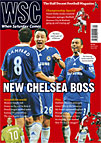 Bradford left it to the last moment before calling off their match with Darlington. Jason McKeown looks at why they waited
Bradford left it to the last moment before calling off their match with Darlington. Jason McKeown looks at why they waited
Football postponements are rarely satisfying. Often one manager will launch conspiracy theories about the other pressurising the referee to call it off, the chairman rues money lost on those now worthless pie orders and programmes, away supporters who’d already set off complain it should have been postponed sooner.
When Bradford City’s home game with Darlington was called off an hour and a half before kick-off in February, away fans who’d just completed the 66-mile trip to West Yorkshire had cause to be miffed. Yet frustration from both sides was also directed towards a third-party who it was perceived held a worryingly high influence over the lateness of the postponement, prompting renewed concerns over how much consideration is paid to the ordinary fan.
On Monday February 2 the UK suffered its worst snowfall for 18 years; leading to one in five workers taking a ‘snow day’. That evening Bradford’s clash with Darlington was scheduled to be screened live on Sky. The Bantams made every effort to keep the game on, throwing covers over the pitch minutes after their Saturday win over Grimsby to compensate for a lack of undersoil heating. After heavy snow on Sunday night, the club issued local media appeals for supporters to help clear snow from the covers and stands. With further snowfall during the afternoon limited, match referee Andy D’Urso passed the pitch fit to play at 3pm with the promise he would inspect it again at 6pm.
As with any fixture in doubt, supporters were left in limbo and could only keep checking online for updates and anxiously look outside at how fast snow was falling. With many struggling just to get home from work through treacherous conditions, it soon became clear, via online forums, that many were not going to take their chances and instead watch the game on TV in warm comfort – prompting fears Sky’s coverage would feature an embarrassingly empty-looking stadium. As others set off conditions worsened, then a gust of wind knocked snow from a stand roof onto the pitch leaving D’Urso with no alternative but to call it off. Away supporter coaches pulled up outside the ground just in time to learn it had been a wasted journey.
Not that it was only away fans angry. Many Bradford supporters were left aghast that, even if the pitch was fit for play, the potentially hazardous journey to and from Valley Parade they would have had to make wasn’t considered. Dozens of scheduled Tuesday night fixtures around the country had already been called off, prompting questions over whether Sky’s need to keep its Monday night schedule intact came before supporters’ safety. Bradford joint-chairman Mark Lawn even admitted the strenuous efforts to get the game on wouldn’t have been made in regular, non-TV coverage circumstances. The Bradford City Supporters Trust summed up many fans’ feelings by questioning, “whether this episode offers final proof that the demands of the TV schedule these days exclude all concern for the welfare of fans”. Even former referee and now regular Darlo watcher Jeff Winter used his website to attack Bradford and Sky. He ranted, “You fans are the lowest of low and are insignificant in the grand scheme of things … The corporate cash and the TV monies are far more important than the real fans.”
Given Bradford has pioneered cheap season ticket deals over the last two years – resulting in remarkable five-figure crowds for League Two games – such accusations appear misdirected. Yet the club’s actions left many supporters feeling undervalued – an announcement of the postponement wasn’t even posted on the club’s website until after 7pm, meaning fans had to rely on other media outlets.
These extraordinary events raise questions over the fairness of TV money distribution and the tough position it leaves clubs desperate for more of it. Under the current deal, which ends this season, £37 million a year is split between the 72 Football League clubs, but extra comes to those fortunate enough for Sky to cover one of its fixtures. This was the first City home game scheduled to be on Sky since October 2005 and the reputed lost £50,000 is a lot for a club which has twice gone into administration since its Premiership days. At the time, it was also struggling to find a shirt sponsor to replace the Government-rescued Bradford & Bingley. This unbudgeted-for TV bonus could have proved significant in Bradford’s promotion push, demonstrating how desperate they were to beat the weather.
Talk of Darlington fans boycotting the rearranged fixture in protest two weeks later never took off and, after their club’s next two games were also called off, 452 came back to witness a 0-0 snooze-fest. Sky and its money was elsewhere. Going by the current regularity of coverage they receive, Bradford will be hoping for better weather when the cameras return in 2013.
From WSC 266 April 2009